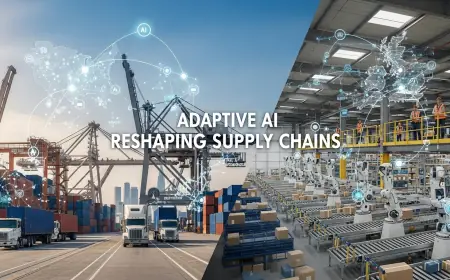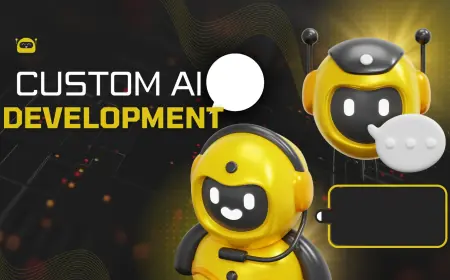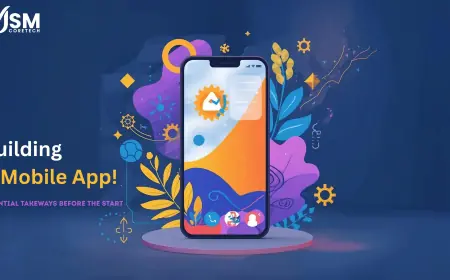How Is Artificial Intelligence Used in Daily Life?
This Article is about How Is Artificial Intelligence Used in Daily Life? Artificial Intelligence Course in Chennai can help you learn how these systems function and evolve.
Artificial Intelligence, or AI, is not limited to research labs or high-end technology companies. It has quietly become a part of our everyday lives, often in ways we may not even realize. Whether you are checking your email, streaming your favorite shows, or getting directions to a new place, AI is working behind the scenes to make your life more convenient and efficient. Understanding how AI is integrated into daily activities is essential, and exploring an Artificial Intelligence Course in Chennai can help you learn how these systems function and evolve.
Invisible Presence of AI Around Us
Many of the technologies we use today are powered by AI. It works by analyzing data, learning from patterns, and then using that knowledge to make predictions or decisions. AI does not need to look like a robot to be considered intelligent. It can be a simple piece of software that helps you complete tasks faster and more accurately.
From smartphones to smart homes, AI is everywhere. Here are some of the most common and impactful ways AI is used in daily life.
AI in Smartphones
Our smartphones are one of the most common examples of AI in action. Voice assistants like Google Assistant, Siri, and Alexa use AI to understand your commands, respond to questions, set reminders, and perform tasks. They learn from your usage patterns and improve their accuracy over time.
The predictive text feature on your phone keyboard is also AI-based. It suggests words and corrects spelling based on the way you write. Similarly, facial recognition systems that unlock your phone use AI algorithms to identify your unique facial features.
AI in Social Media
Social media platforms rely heavily on AI to enhance user experience. When you scroll through your feed, the content you see is selected by AI systems that analyze your interests, past interactions, and behavior. These platforms also use AI to detect inappropriate content, manage fake accounts, and deliver targeted advertisements.
AI also helps in features like automatic tagging of friends in photos and suggesting pages or people you might like to follow. All these functions are driven by machine learning models trained on massive user data.
AI in Online Shopping and Recommendations
When you browse products online, AI is quietly observing your behavior. Based on what you view, add to cart, or purchase, recommendation engines suggest items you may like. These engines use AI to increase user engagement and improve sales.
Even chatbots that assist you during online shopping are powered by AI. They respond instantly, answer questions, and help users navigate through websites more effectively. AI makes e-commerce faster, smoother, and more personalized.
AI in Navigation and Travel
Most people use AI in the form of maps and navigation apps. Applications like Google Maps use real-time data and AI algorithms to predict traffic, estimate travel times, and suggest the fastest routes. Ride-sharing apps also use AI to match drivers with passengers, set prices, and improve user experience.
Travel booking platforms rely on AI to provide the best travel packages, suggest destinations, and analyze customer preferences. This saves time and allows for more efficient travel planning.
AI in Healthcare Services
AI is transforming the healthcare industry by making it more accessible and efficient. Virtual health assistants can remind patients about medication schedules and answer basic health-related questions. Some hospitals use AI tools to assist in diagnosing diseases through image analysis and patient records.
Wearable fitness trackers like smartwatches monitor heart rate, sleep patterns, and activity levels. These devices use AI to give users insights into their health and offer suggestions for improvement.
At FITA Academy, students are introduced to how AI is used in industries such as healthcare, retail, and logistics. Through practical training and expert guidance, learners gain hands-on experience in building AI applications that mimic these real-world scenarios.
AI in Banking and Finance
AI is widely used in the financial sector to detect fraudulent transactions, assess credit scores, and manage customer service. Chatbots handle a significant portion of customer queries without human intervention. AI also supports automated trading systems, which make quick decisions based on financial data.
Personal finance apps use AI to track expenses, create budgets, and offer savings advice based on spending behavior. This level of automation would not be possible without intelligent systems analyzing data continuously.
AI in Entertainment and Streaming
AI powers your favorite entertainment platforms. When you open a streaming app, the suggestions you see are based on your previous viewing habits. These recommendation engines analyze your preferences and help you find content that matches your taste.
Music platforms work similarly, offering playlists and song suggestions tailored to your listening history. AI makes the user experience seamless and more engaging across entertainment services.
Artificial Intelligence is no longer a futuristic concept. It is already playing a significant role in how we live, work, and interact with technology. From your mobile phone to your favorite online platforms, AI is everywhere. Understanding how it functions and learning to build these systems can open up exciting career opportunities.
What's Your Reaction?
 Like
0
Like
0
 Dislike
0
Dislike
0
 Love
0
Love
0
 Funny
0
Funny
0
 Angry
0
Angry
0
 Sad
0
Sad
0
 Wow
0
Wow
0
















































